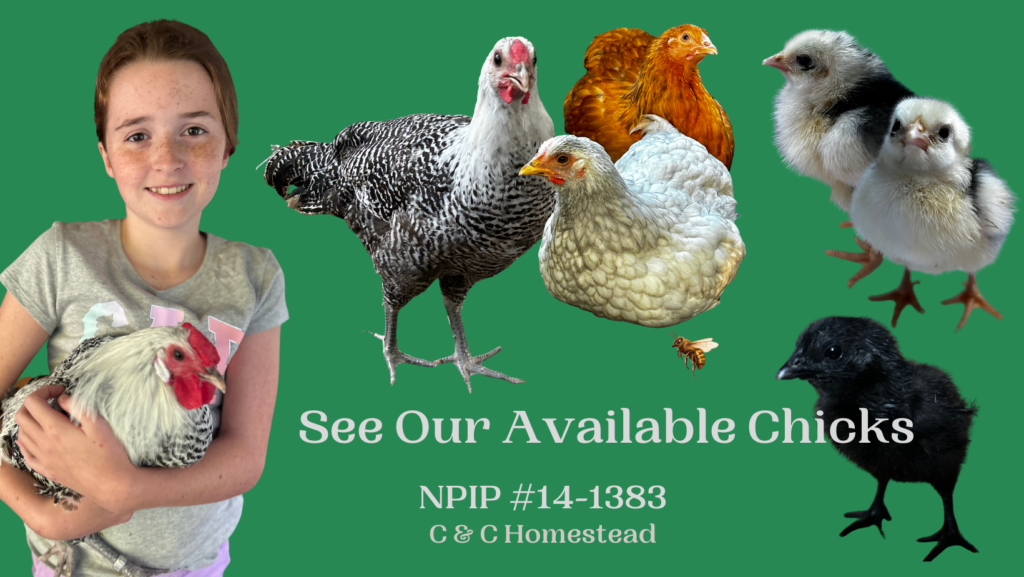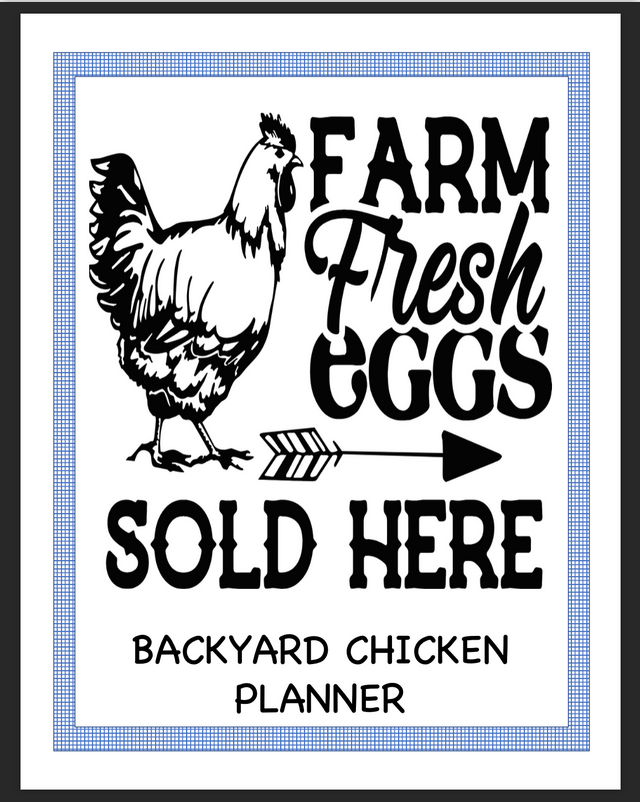Balancing Corporate & Homesteading Lifestyles
Dominance And Roosters
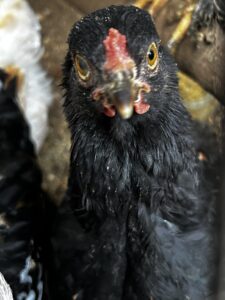
Here's why dominance doesn't work well with chickens:
- Stress and Aggression:
- Attempting to establish dominance through force or aggressive behavior can stress chickens, leading to fear and anxiety within the flock.
- Aggressive actions may trigger defensive responses from chickens, potentially resulting in increased aggression among flock members.
- Hierarchy Establishment:
- Chickens naturally establish a pecking order within the flock, where each bird knows its place. This hierarchy is typically formed through subtle interactions and not through dominance-based methods.
- Trying to assert dominance disrupts the natural order and may lead to increased aggression and social instability.
- Trust Issues:
- Building trust with chickens is crucial for their well-being and effective management. Using dominance-based methods erodes trust and can make it challenging to handle or interact with the birds.
- Ineffective Communication:
- Chickens communicate through subtle body language and vocalizations. Trying to dominate them disrupts these natural communication channels, making it difficult for chickens to understand human cues.
- Long-Term Behavioral Issues:
- Dominance-based methods may result in long-term behavioral problems, such as increased fearfulness, reduced egg production, or even feather picking among flock members.
- Alternative Approaches:
- Positive reinforcement and rewards are more effective methods for training and managing chicken behavior. Chickens respond well to treats, praise, and consistent, gentle handling.
- Understanding and respecting the natural instincts of chickens, such as their pecking order and social structure, allows for a more harmonious and stress-free environment.
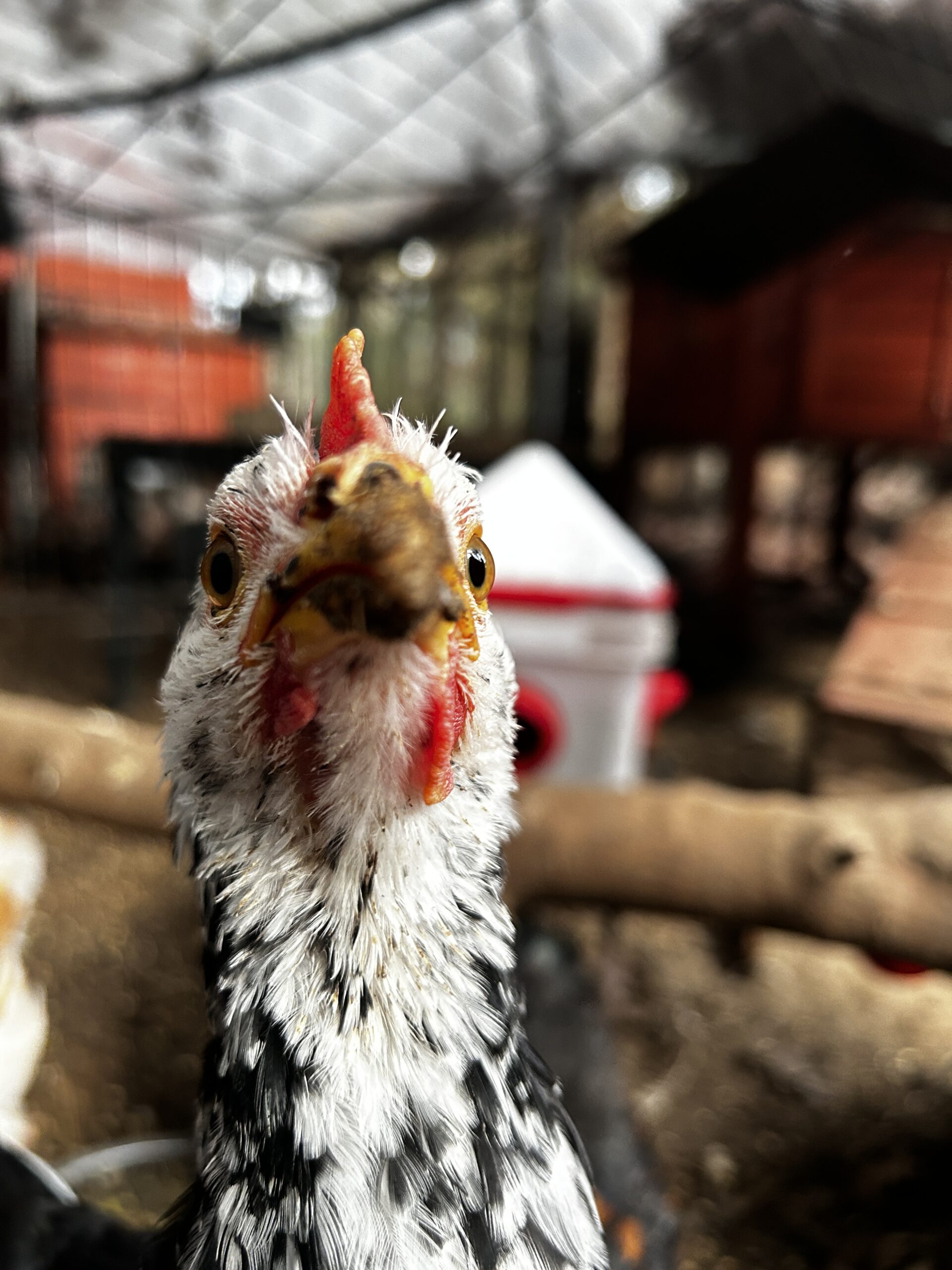
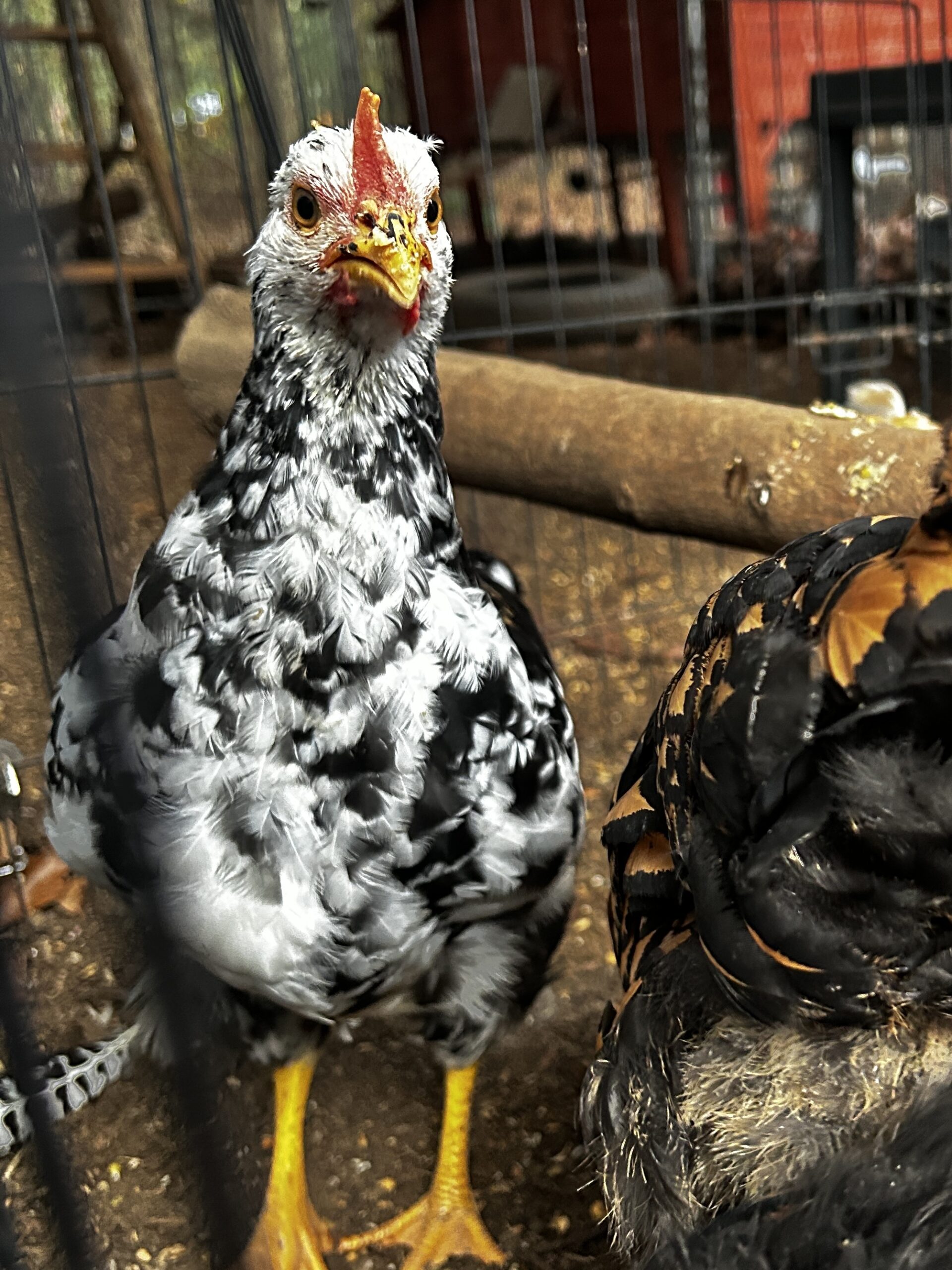
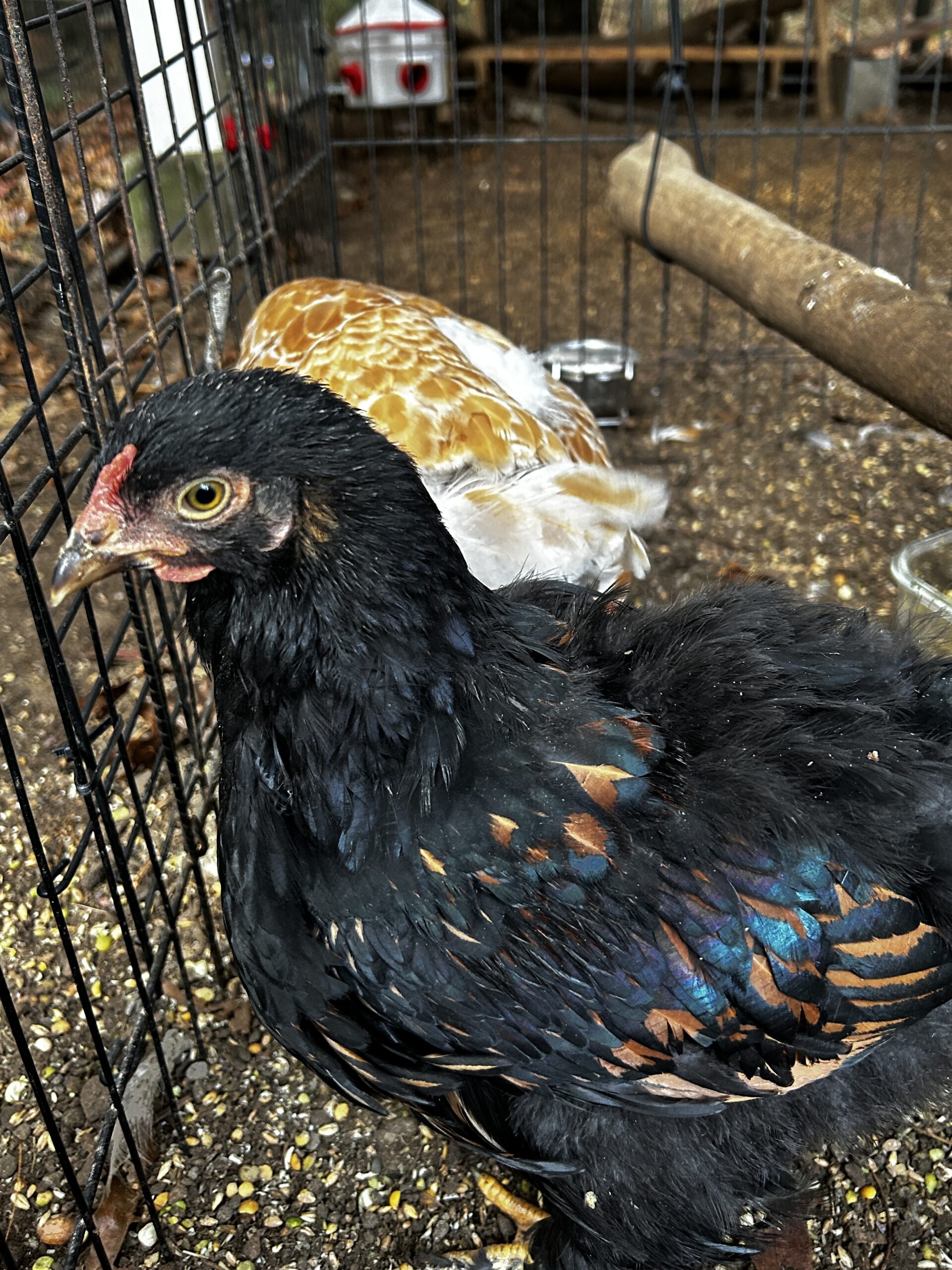
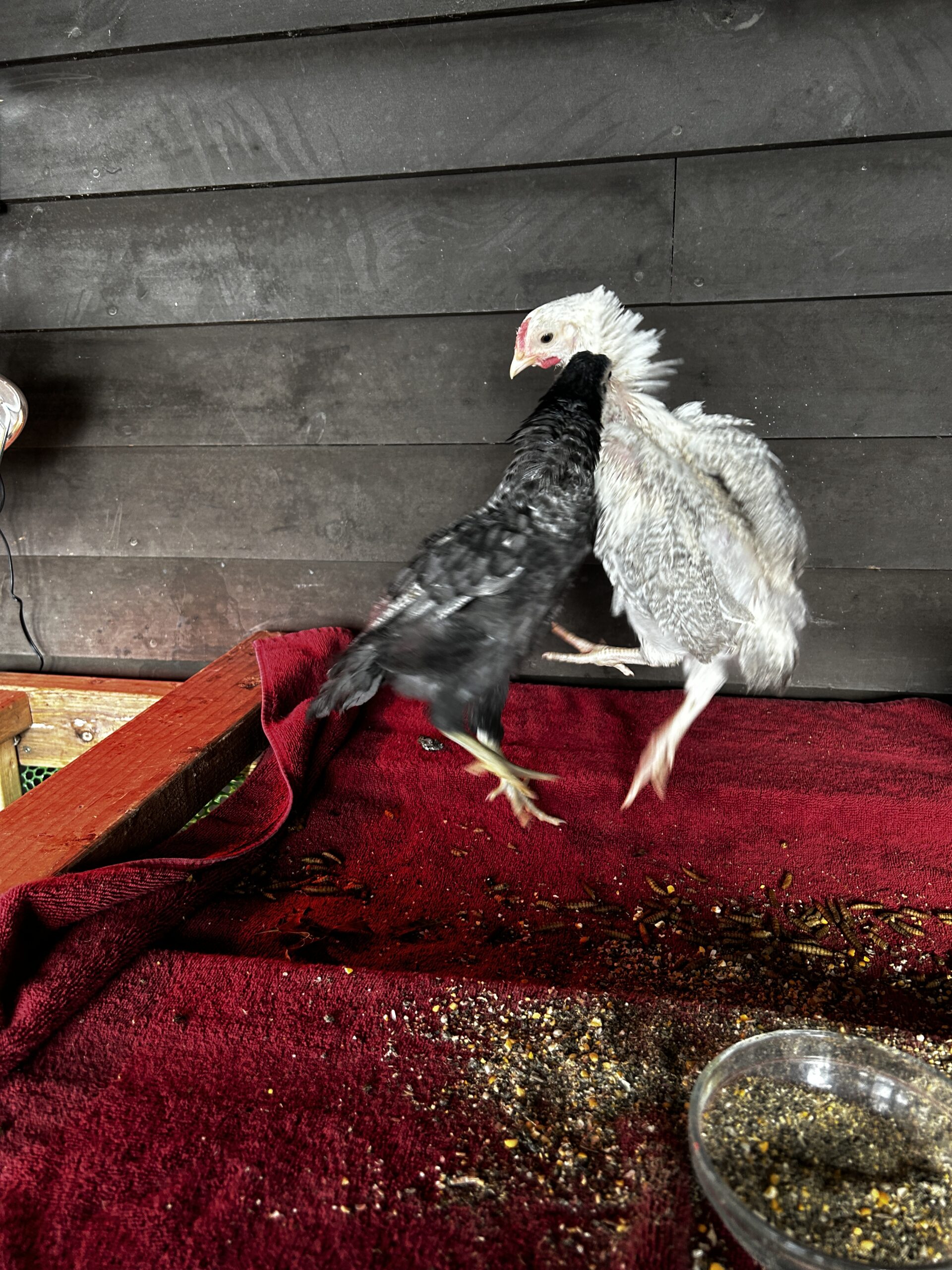
In summary, establishing a positive and respectful relationship with your chickens, based on understanding their natural behavior, is far more effective than attempting to assert dominance. Chickens thrive in environments where they feel secure, trust their caregivers, and can express their natural behaviors without unnecessary stress.
If you have a rooster and looking for help, we highly suggest you check out Roovolution or follow our posts as we work with Storm, our handsome Deathlayer rooster.

